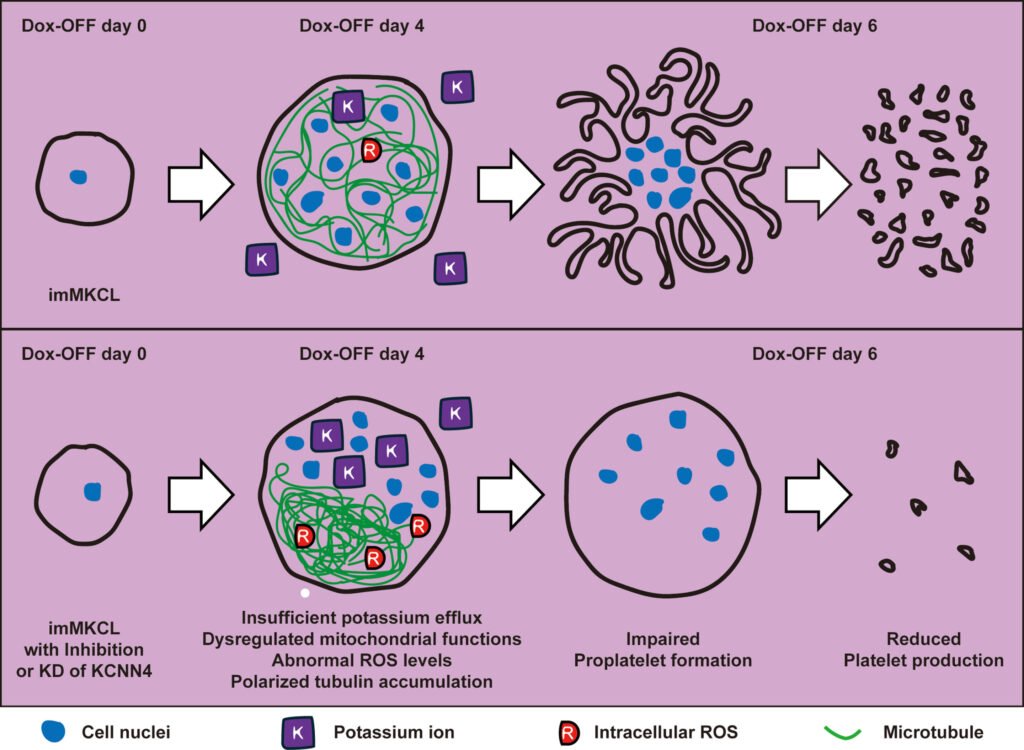The groundbreaking research conducted by Professor Koji Eto and his team has shed light on the crucial role of potassium ion channels in platelet production. Their study, published in the Journal of Thrombosis and Haemostasis, revealed how disruptions in the KCNN4 potassium channel can lead to impaired mitochondrial function and cytoskeletal organization in megakaryocytes, ultimately resulting in reduced platelet production.
Platelet transfusions are vital for treating bleeding disorders and supporting patients undergoing chemotherapy or surgery. However, the limited availability of donors and the short shelf life of platelets present significant challenges in clinical settings. In response to these challenges, the Eto Laboratory developed immortalized megakaryocyte progenitor cell lines (imMKCLs) derived from human iPS cells for scalable ex vivo platelet production.
The researchers focused their investigation on the role of potassium ion channels, particularly KCNN4, in platelet biogenesis. Using imMKCLs and human cord blood-derived megakaryocytes, they observed a decline in intracellular potassium concentration during the maturation stage, with KCNN4 expression peaking at the onset of platelet generation. Inhibiting or knocking down KCNN4 significantly impaired proplatelet formation and reduced platelet yield, accompanied by disrupted microtubule organization, decreased mitochondrial membrane potential, and elevated reactive oxygen species.
Further analysis revealed that KCNN4 inhibition led to asymmetric tubulin accumulation, mitochondrial dysfunction, and increased ROS levels, disrupting the microtubule dynamics necessary for proplatelet formation. Interestingly, these effects were specific to the maturation process and did not affect cell viability or ploidy. The study highlighted the critical role of KCNN4 in maintaining mitochondrial integrity and ROS balance during early megakaryocyte maturation, emphasizing a narrow window for ion channel activity.
The findings of this study not only uncover a novel molecular pathway in platelet biogenesis but also suggest potential strategies to enhance ex vivo platelet production. By elucidating the role of KCNN4 in thrombopoiesis, the research paves the way for developing targeted therapies for thrombocytopenic disorders and improving the reliability of platelet supply for transfusion medicine.
For more information on this groundbreaking research, you can refer to the article published in the Journal of Thrombosis and Haemostasis by Qihao Chen et al. This study opens up new avenues for understanding platelet biogenesis and highlights the importance of potassium ion channels in maintaining mitochondrial function and cytoskeletal organization during megakaryocyte maturation.


